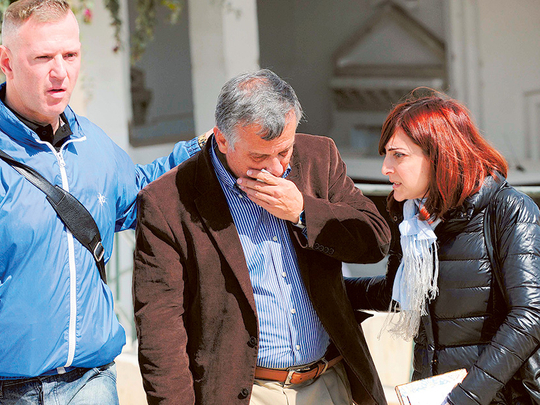
Manama: As Tunisians were left to lick their wounds from the unprecedented terror attacks that left a heavy death toll, Parliament Speaker Mohammad Al Nasser has called for a national day of solidarity against terrorism in which all political parties will take part.
The attack on the Bardo Museum, one of the top museums in the Arab world, occurred around noon on Wednesday and official figures released by the health ministry put the death toll at 23, including three Tunisians, and 47 wounded.
Al Nasser said that a popular march should be organised to demonstrate the unity of Tunisians in rejecting and fighting terrorism
“This march should reflect the solidarity and unity of Tunisians in the face of terrorism and their readiness to have an active role in the fight,” the Speaker said as he chaired an emergency session of parliament late on Wednesday.
“All political parties and national organisations should rise above their differences and show a common front against terrorism in order to help eliminate it from the country,” he said, local daily Assabah reported on Thursday.
Anti-terror fund
The government should work on reinforcing the power of the security and military with adequate equipment to help them assume their responsibilities to the best of their capabilities.
“Such a move should be implemented quickly to help ward off risks and threats to the nation,” he said.
Al Nasser said that parliament should work on endorsing a motion to set up an anti-terror national fund.
“The lawmakers should rearrange their priorities and move towards endorsing the anti-terror fund. The fact that it has not been approved yet gives public opinion the impression that there is no genuine interest from the parliament,” he warned.
“Once the draft law is referred to the parliament from the government, it will be reviewed either by the competent committees or by a special committee. In the meantime, we urge all Tunisians to be extra vigilant,” he said.
Hafedh Gribi, a journalist, said that the march through the streets of the capital Tunis should be “truly international” to reflect a global rejection of terrorism.
“The tragedy is terribly dramatic and it is not confined to Tunisia,” he said. “There were innocent victims from Italy, France, Spain, Russia, South Africa, Japan, Poland and Colombia. The least that should be done is to call upon the peoples and leaders of these countries to materialise their rejection of terrorism in a clear message to the terrorists that they are body and soul with Tunisia,” he said.
The leaders of the countries affected by the attacks as well as other leaders who openly reject terror should join the Tunisians in a massive march, he added.
“I call upon Tunisia’s President Beji Qaid Al Sebsi to invite fellow leaders to the march. It will be a real test of their stance against terror,” he said.
Marouan Achouri, another Tunisian journalist, said that the aim of the attacks was obviously to scare foreigners and locals and undermine the tourism industry, a key pillar for revenue.
“However, we are not scared. If your objective is to terrorise us, then be sure that you will never make it. We will not be afraid of you and we will keep moving forward despite all the pains and challenges,” he said.
Mohammad Ali Aroui, the spokesperson for the interior ministry, said investigations had been launched into the relationships of the two terrorists with others and “we are ready to deal with all terror-linked situations,” he told a private Tunisian television channel.
Social media was flooded with messages of sympathy with Tunisia and several Europeans said that they would spend their summer holidays in the North African “in solidarity with Tunisians and in defiance of terrorism.”
The “I am Bardo” and “I am Tunisian” campaigns were launched hours after the attacks in the upmarket western suburbs of Tunis.











